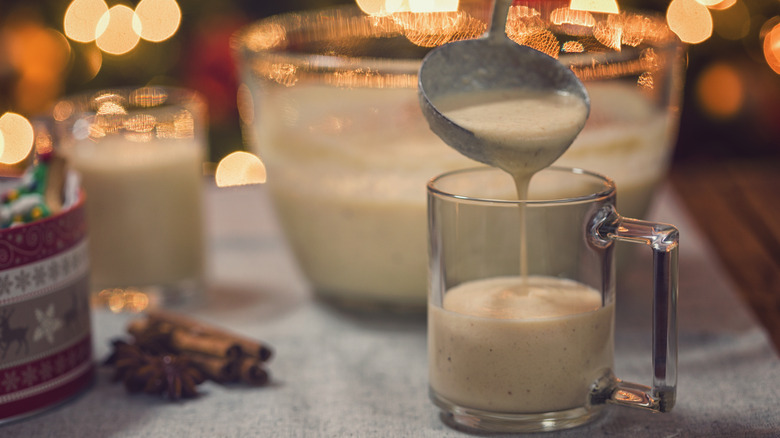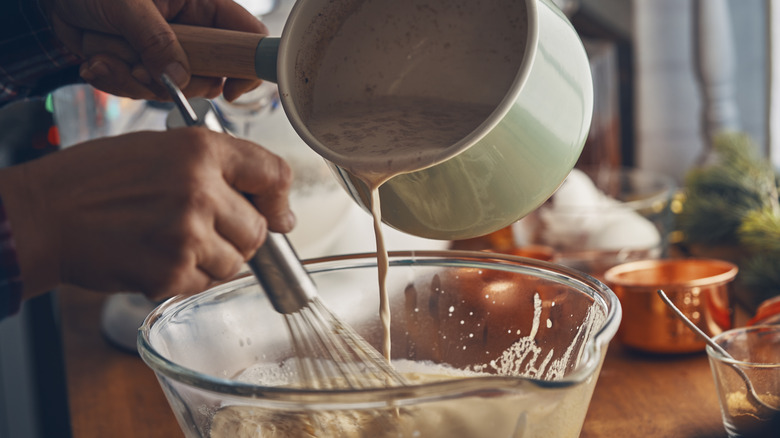How To Make Sure Your Eggnog Is Kid-Friendly This Holiday Season
Nothing hits the spot quite like creamy homemade eggnog. However, if you have little ones, it's important to be careful before introducing them to this holiday staple. Beyond making sure that your eggnog recipe is alcohol-free, you need to be aware of whether it uses raw eggs or not.
While often not taken seriously by many people (raw cookie dough, anyone?), raw eggs carry the chance of transmitting salmonella. This bacteria is one of the most common causes of food poisoning in America, and it can cause symptoms like abdominal pain, vomiting, diarrhea, and fever. Although many people are able to recover without issue, in some cases, hospitalization can be needed if the bacteria is able to enter the bloodstream. The folks with the highest risk of becoming severely ill from salmonella include pregnant people, the elderly, and children. However, the chances of contracting salmonella from eggnog can be eliminated.
For one, almost all of the eggnog found in stores is safe for children due to pasteurization, a heating process that kills bacteria to make the eggnog more shelf-stable. However, you should still always check the label to ensure the eggnog you're buying says it has been pasteurized before serving it to children. If you're keen on homemade eggnog, it can be made safe by using things like pasteurized eggs. That said, care should still be taken with very young children, and eggnog should never be given to kids under one year because dairy can cause intestinal bleeding at that stage.
Homemade eggnog that's both safe and delicious
Although traditional eggnog made with raw eggs isn't safe for kids, you can make a kid-friendly version at home. The key is to use either pasteurized eggs or a heated egg mixture. Though you can sometimes find pasteurized liquid eggs in a separate carton, not every store sells pasteurized eggs. You can pasteurize eggs at home using the sous vide method, but it isn't 100% foolproof and isn't recommended for kids.
If you can't find pasteurized eggs at the store, you can make eggnog safely by gently heating your egg mixture over low heat. The mixture should reach 160 degrees Fahrenheit, but don't let it begin to boil. At that point, the eggnog should just start to thicken, after which it can be put into the fridge to cool for 24 hours. Alternatively, you can forgo the eggs altogether and make a vegan eggnog with almond milk, coconut sugar, and spices.
Whether you use a kid-friendly recipe or buy eggnog from the store, don't forget that you can also spice things up with bonus ingredients. For example, adding pumpkin puree to eggnog is a great way to serve up some fall flair while maple syrup makes eggnog extra rich and comforting. If you're feeling extra festive, toss in some green food coloring for Grinch-nog or some red for Santa-nog. Top the glass off with some whipped cream and sprinkles and the kids will go crazy.

